


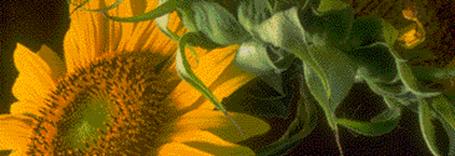
|
Where birds of a feather flock together. |
|
Audubon Hills Association (AHA!) Est. 1968 |

|
Living with Black Bears |
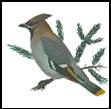
|
Waxwing Lane |
|
From September to December we get bears, they are here for the apples. We have had three different types of Black Bears in Audubon Hills... |
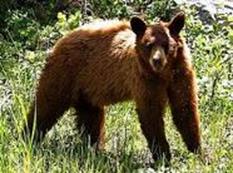
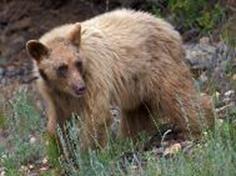
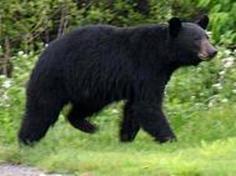
|
Black Bear |
|
Red Cinnamon Black Bear |
|
Blond Black Bear |
|
Food Habits Black Bears are omnivorous and feed on a wide range of both plants and animals. Their diet can include grasses, wood fiber, berries, nuts, acorns, tubers, insects, animals, carrion and garbage. The Problem… Most bear problems are actually PEOPLE problems. It’s rather easy to keep a bear away from your property. It takes a conscious effort of the human population, in an entire neighborhood, to keep them away. Problem Prevention ¨ NEVER FEED BEARS! Often people leave food out for bears so they can take pictures of them or show them to visiting friends. Doing this only conditions the bear to associate people and residences with a food source. You have a responsibility to your neighbors, and by feeding bears, you are endangering not only adults, but children, pets, and the bears life too. ¨ Bears that have become addicted to garbage and human food. Once bears become accustomed to human food and garbage, they become drawn to areas of human occupation. Once this happens, they become aggressive, and must be put down. Relocation does not work. ¨ Do not store garbage outside or in your vehicle. It is the smells that draw the bears to a specific location, from a long distance. Food scraps and other odor producing garbage should be sealed in plastic bags before being disposed of. Put your can in a garage or get a bear proof can. Click here for more info.¨ Remove pet food and bird feeders. Pets should be fed during daylight hours and all pet food removed before darkness. Take your feeder down and wait late November before filling it with seed or hummingbird nectar.¨ Keep your compost free of meat and meat by-products. It is important to limit what we place in our compost heaps. Avoid placing fish, meat, bones, egg shells, dairy products or fruit into your compost. Adding some lime to your compost can also speed up the decomposition and reduce the smell.¨ Keep your barbeque clean. The smell of a juicy steak can permeate the air and attract more than envious glances from non-barbequing neighbors. These same smells can attract bears to your deck once you head to bed. When you're finished your feast, burn the food off of the grill, or at least clean the barbeque carefully.¨ Pick up fruits and veggies on the ground. All ripe and windfall fruit/vegetables should be picked daily. Food should never intentionally be left out for wild animals. In rural suburban areas like ours, where livestock such as lambs, piglets, calves, or poultry are raised and predation has been documented, precautions should be taken to prevent further losses. Animals can be brought into barns, sheds or enclosures at night to minimize losses. This has happened in Audubon, keep animals locked away at night.To keep them away… See Dept. of Ag. website¨ Securely block access to under-house crawl spaces.¨ Small areas can be enclosed with an electric fence around your cans. The electric fence ribbon seems to work better for bears than the smooth wire. A ground apron will make it more effective.¨ Use a paintball gun to scare a bear if he comes into your yard.¨ Camera flashes scare them.¨ Yell or blow a boat horn to let the bear know he's unwelcome in your yard. If he turns back throw a rock at him.¨ The use of frightening devices such as exploder cannons, barking dogs, fireworks, radios, and human effigies with recorders may provide temporary success in reducing problems, but over time, bears can become very tolerant of these methods. These methods should be used at the first signs of bear problems.¨ If you have a remote car alarm, put the cans near the car, if you hear the bears near the cans, activate your alarm from inside your house. The lights and honking will scare them away.¨ Don't talk nicely to bears who come near your house. Make them think you will harm them. Be aggressive with them.If You Come Face to Face…¨ When walking ,make noise, so you don’t “sneak” up on it. Black bears are more docile and will avoid confrontation. ¨ If you do surprise it, do not wave your arms and yell, rather put your arms up and jacket out. ¨ Put children on your shoulders. ¨ LOOK BIG! ¨ If it’s watching you, give it a place to get away. ¨ Walk backwards, facing the bear, DO NOT look it in the eyes, speak in calm monotone voice. ¨ DO NOT RUN, you could trigger predatory response and they will outrun you. ¨ If the bear does come to you, stand firm, they are just trying to challenge you. ¨ Keep making noise, start throwing rocks and sticks. FIGHT BACK. ¨ If you go for walks or runs often, bring pepper spray, it works great for bears, Mt. Lions, and dogs. The intent is not to harm the bear, but to scare it from the area and restore its natural fear of people by providing a negative experience. |
|
You can always go to the KEEP ME WILD website, to get the most recent information on living with wildlife. We’ve also provided some pamphlets below. Just click on the titles. |
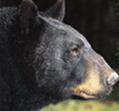

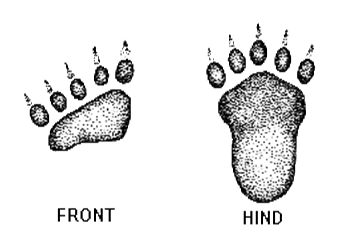
|
This is a wonderful website, and a great source of information. |
